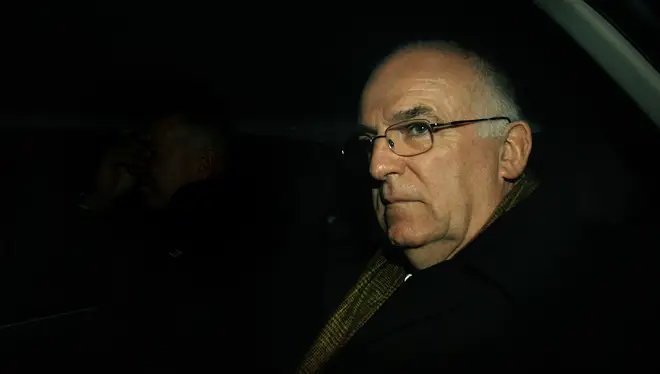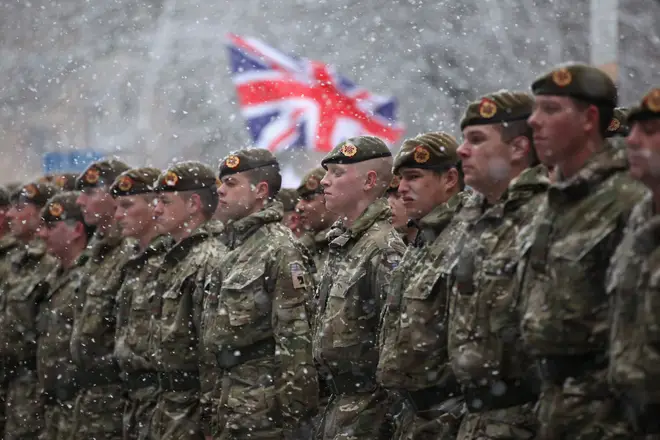
James O'Brien 10am - 1pm
10 February 2024, 23:44 | Updated: 11 February 2024, 07:37

The British Army want to loosen security checks for overseas recruits in order to boost diversity and inclusion, according to reports.
Britain's armed forces are currently going through a recruitment crisis and are seeking to boost their numbers through recruiting from ethnic minority backgrounds.
Documents seen by the Telegraph suggests loosening vetting requirements because they are "the primary barrier to non-UK personnel gaining a commission in the Army".
Read More: Ukraine’s new army chief aiming to harness power of high-tech weapons
Sir Richard Dearlove, former head of MI6 from 1999 to 2004, said: "The evidence published today in the Telegraph, which apparently prioritises the diversity, equality, and inclusion in matters of national security, is very worrying indeed.
"Effective security policy at whatever level they are applied, simply do not allow for 'politically correct' soft edges."
The row comes after the government was urged earlier this year to "get a grip" on the British army, with troop numbers falling fast, amid NATO warnings that Western countries could be at war with Russia within two decades.

The British army could number just 52,000 troops in ten years, based on current trends, an analysis has shown.
It currently stands at around 76,000 regular full-time troops, down from nearly 103,000 in 2012.
The government plans to cut the number of soldiers to 72,500 by next year, which has caused concern among US generals.
But with recruitment proving difficult despite contracts worth more than a billion pounds awarded to a private company to oversee the process, army numbers could drop faster.

John Healey, Labour's shadow defence secretary, told the Times: "On current trends, our army is set for further decline if ministers do not get to grips with their recruitment and retention crisis.
"Despite falling numbers, the UK still considers itself to be a top-tier military power, and the British army is providing 20,000 out of 90,000 NATO troops taking part in major exercises that are starting next week.
"Britain is one of eight NATO members - out of 30 - who invested 2% of its GDP in the military, which all members previously agreed to do."